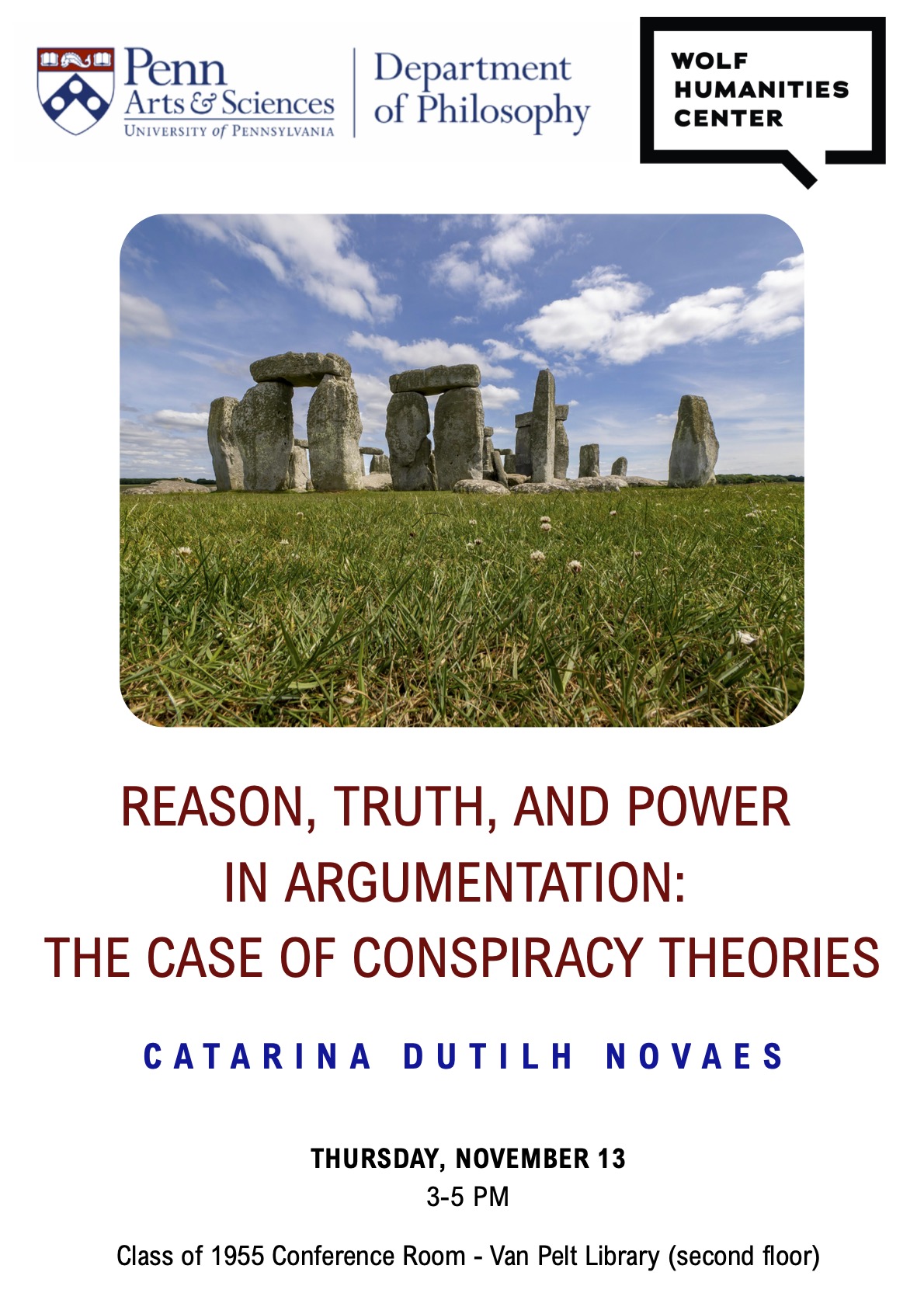Class of 1955 Conference Room - Van Pelt Library (second floor)

Please join us for a talk with Catarina Dutilh Novaes!
Abstract:
In my forthcoming book, Reason and Power in Argumentation (CUP, 2026), I discuss the limits of rational discourse and the many ways in which, in argumentative exchanges, the ‘power of reason’ is constrained, undercut, and neutralized by other types of power: strategic, economic, political, epistemic, social, emotional, etc. One of the domains in which the limits of rational discourse seem to emerge pertains to so-called ‘conspiracy theories’: prima facie, conspiratorial beliefs seem to be immune to rational (counter-)argumentation, truth, evidence, or factual debunking. In this talk, I argue against this characterization of conspiratorial beliefs. I contend that overly ‘rationalistic’ approaches to conspiratorial beliefs fail to take into account the role of epistemic environments in the formation of conspiratorial beliefs, and fail to do justice to the affective dimension of enchantment that (many) conspiracy narratives bring along with them. Adopters of conspiratorial beliefs are usually not simply ‘irrationally’ resisting counter-evidence; after all, real conspiracies do occur! Rather, they are balancing counter-evidence against the conflicting higher-order evidence provided by their epistemic environments, and looking not only for ‘cold facts’ but also for enchanting narratives to make sense of their lived experiences. The proposed interpretation of conspiratorial beliefs points in the direction of different types of interventions, in cases where such beliefs can have negative consequences (both for individuals and for societies). Indeed, some conspiracy theories pose a significant threat to societies and democratic institutions, which can only be addressed if the underlying phenomena are properly understood.
Speaker's bio:
Catarina Dutilh Novaes is a Professor and University Research Chair in the Department of Philosophy at VU Amsterdam. She is also a Professorial Fellow at Arché at the University of St Andrews. She is the author of many contributions in the fields of history and philosophy of logic, philosophy of mathematics, and social epistemology, as well as philosophy of psychology and cognitive science, philosophy of mind, and philosophy of gender and race. Her most recent monograph, The Dialogical Roots of Deduction (CUP, 2020) won the 2022 Lakatos Award. Next year, she will be the Distinguished NIAS-Lorentz Fellow at the Netherlands Institute for Advanced Study to work on a new project on colonial legacies in scientific practices.

 Department of Philosophy
Department of Philosophy